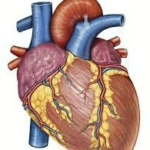Vitamins 101: Essential Nutrients and How to Incorporate Them Into Your Diet
Vitamins are organic compounds that are crucial for maintaining overall health. They help our bodies function optimally, support metabolic processes, and are vital for growth, development, and disease prevention. This article serves as a guide to understanding vitamins, their roles, and practical ways to incorporate them into your daily diet.
Understanding Vitamins
Vitamins are divided into two main categories: water-soluble and fat-soluble.
Water-Soluble Vitamins
These vitamins dissolve in water and are not stored in the body, which means you need to consume them regularly. They include:
- Vitamin C: Essential for the immune system, collagen synthesis, and iron absorption.
- B Vitamins: A group that includes B1 (thiamine), B2 (riboflavin), B3 (niacin), B5 (pantothenic acid), B6 (pyridoxine), B7 (biotin), B9 (folate), and B12 (cobalamin). They play a crucial role in energy metabolism and the formation of red blood cells.
Fat-Soluble Vitamins
These vitamins are absorbed with dietary fat and can be stored in body tissues. They include:
- Vitamin A: Important for vision, immune function, and reproduction.
- Vitamin D: Crucial for calcium absorption and bone health.
- Vitamin E: Acts as an antioxidant, protecting cells from damage.
- Vitamin K: Essential for blood clotting and bone health.
How Vitamins Function in the Body
Vitamins execute a wide range of functions, including:
- Boosting the Immune System: Vitamins A, C, D, and E play a significant role in enhancing immune response.
- Energy Production: B vitamins assist in converting food into energy.
- Bone Health: Vitamins D and K work together to maintain healthy bones.
- Antioxidant Protection: Vitamins C and E help protect the body from oxidative stress.
Daily Requirements
The recommended daily intake of vitamins can vary based on age, gender, and life stage. It’s important to refer to guidelines from health organizations, such as the Institute of Medicine or the World Health Organization, for specific recommendations.
Incorporating Vitamins Into Your Diet
Incorporating essential vitamins into your diet is vital for health. Here are several strategies to help you do so effectively:
-
Diverse Diet: Aim for a varied diet rich in fruits, vegetables, whole grains, lean proteins, and healthy fats. The more colors on your plate, the better!
-
Fruits and Vegetables: Include a mix of citrus fruits (for Vitamin C) and leafy greens (for Vitamin K and various B vitamins). Carrots are great for Vitamin A, while bell peppers offer both C and A.
-
Whole Grains: Foods like brown rice, oats, and whole grain bread are excellent sources of B vitamins.
-
Lean Proteins: Incorporate sources such as poultry, fish, eggs, and legumes, which provide a variety of B vitamins and essential minerals.
-
Dairy and Alternatives: Milk, yogurt, and fortified non-dairy options supply Vitamin D and A, vital for bone health.
-
Healthy Fats: Avocados, nuts, and seeds help in the absorption of fat-soluble vitamins A, D, E, and K.
- Supplements: If you’re unable to meet your vitamin needs through diet alone, consider supplements. Always consult with a healthcare provider before starting any new supplement regimen.
Vitamins in Focus
To better understand the significance of vitamins in your diet, let’s take a closer look at some key vitamins:
Vitamin A
Vitamin A is crucial for maintaining healthy vision and a robust immune system. It can be found in foods such as:
- Carrots
- Sweet potatoes
- Spinach
- Kale
Vitamin C
Vitamin C is vital for skin health and immune function. To boost your Vitamin C intake, include:
- Oranges
- Strawberries
- Red and green bell peppers
- Broccoli
B Vitamins
B vitamins are integral in energy metabolism. You can obtain B vitamins from:
- Whole grains
- Meat (especially liver)
- Eggs
- Leafy green vegetables
Vitamin D
Vitamin D is essential for bone health and calcium absorption. To ensure adequate Vitamin D levels:
- Get sunlight exposure
- Include fatty fish (like salmon and mackerel)
- Consume fortified dairy or plant-based milk
Vitamin E
As an antioxidant, Vitamin E protects cells from damage. Food sources rich in Vitamin E include:
- Almonds
- Sunflower seeds
- Spinach
- Avocado
Vitamin K
Vitamin K plays a key role in blood clotting. You can find it in:
- Kale
- Spinach
- Brussels sprouts
- Broccoli
Special Considerations
It’s crucial to consider that certain populations may require additional attention to their vitamin intake:
-
Pregnant and Nursing Women: These women require more folate and B12 to support fetal development. Foods like legumes, greens, and fortified cereals are beneficial.
-
Older Adults: Aging populations may find it difficult to absorb certain vitamins, especially B12 and D. Regular check-ups and possibly supplements can be useful.
- Individuals with Dietary Restrictions: People on vegan or vegetarian diets may need to pay close attention to their intake of B12 (found in animal products) and may benefit from fortified foods or supplements.
Practical Tips for Meal Planning
To ensure you’re meeting your vitamin needs, consider these meal-planning tips:
-
Meal Prep: Prepare meals ahead of time to include a variety of colorful fruits and vegetables.
-
Snacking Smart: Keep healthy snacks like fruits, nuts, and yogurt handy to ensure you’re getting vitamins throughout the day.
-
Experiment with Cooking: Try different cooking methods, such as steaming or roasting, to maximize the nutrient retention in vegetables.
- Stay Hydrated: Remember that hydration is important as well—consider herbal teas or infused waters to keep things interesting.
Conclusion
Understanding vitamins and their importance is foundational for maintaining good health. By educating yourself about these essential nutrients and consciously including them in your diet, you can promote your overall well-being. Remember, the best approach is to prioritize a balanced diet rich in whole foods rather than relying solely on supplements. Emphasizing variety and color in your meals will not only make your diet more enjoyable but also help ensure that you meet your vitamin needs for a healthier life.
Incorporating these strategies into your daily routine can profoundly impact your health and well-being. Embrace the vibrant array of foods available to you, and remember that every small step towards a balanced diet counts. Your body will thank you for it!


























Add Comment